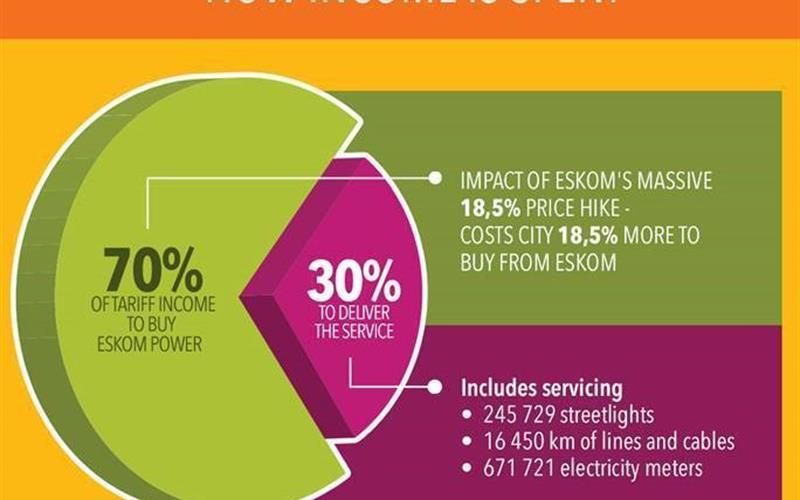Cape Town’s Unique Approach to Electricity Pricing
Cape Town is known for its stunning landscapes and vibrant culture, and the city has once again demonstrated its commitment to its citizens by adopting a unique approach to electricity pricing. Unlike other South African cities, Cape Town has decreased electricity tariffs for ‘lifeline’ customers in an effort to shield struggling households from the staggering 18.5% Eskom tariff hike.
Electricity Pricing Policy
Cape Town’s commitment to easing the burden of electricity costs on vulnerable households is evident in its ambitious electricity pricing policy. Households with a property value under R500,000 enjoy the lowest electricity rate compared to other South African cities for 2023/2024. The city’s legal Council-approved tariff, aligned with the Municipal Finance Management Act, makes this possible.
Refusal to Follow Unsustainable Tariff Recommendations
In contrast to the National Energy Regulator’s (Nersa) tariff methodology, which has been deemed unlawful by two courts, Cape Town’s refusal to follow the unsustainable recommendation is a testament to the city’s dedication to its citizens’ well-being. Cape Town’s decision to decrease electricity tariffs for ‘lifeline’ customers is in stark contrast to other cities where residents on lifeline-equivalent tariffs generally suffer a 15.1% increase in their monthly electricity bills.
Positive Impact on Households
Households using 450 units of electricity per month will benefit from a 5.1% decrease in their electricity bill during 2023/2024, resulting in a saving of R48.27. Those consuming 600 units will experience an even more significant decrease of 18.4%, saving R275 compared to the previous year.
Subsidized Units Available for Purchase
Cape Town’s positive approach to electricity pricing extends to the number of subsidized units available for purchase. The city has increased the number of subsidized units purchasable per month on the lifeline tariff from 350 to 600, providing relief to households that use more electricity during winter months.
Improving Electricity Infrastructure and Service Delivery
Cape Town is committed to improving its electricity infrastructure and service delivery. The city has already made significant strides in protecting against load-shedding. The city offers up to two stages of load-shedding protection and plans to protect against the first four stages of Eskom’s load-shedding by 2025/26. This is all part of the city’s broader plan to end reliance on Eskom and develop more affordable and reliable sources of power.
Investing in Electricity Infrastructure Maintenance and Upgrades
With this ambitious vision in mind, Cape Town is investing an unprecedented R3.95 billion in electricity infrastructure maintenance and upgrades over the next three years. Remarkably, around 80% of electricity outages are fixed in under 3.5 hours for City-supplied electricity customers, with 99.9% of all faults fixed within national Quality of Service timeframes.
Fighting Against Above-Inflation Eskom Tariff Hikes
Throughout the ongoing battle against electricity tariff hikes driven by Eskom, Cape Town has remained steadfast in its commitment to its residents. The city has consistently fought against above-inflation Eskom tariff hikes, which have resulted from corruption, state capture, and mismanagement. In doing so, Cape Town has emerged as a shining example of a city working tirelessly to protect its struggling households, invest in reliable electricity services, and ultimately end the power monopoly held by Eskom.








